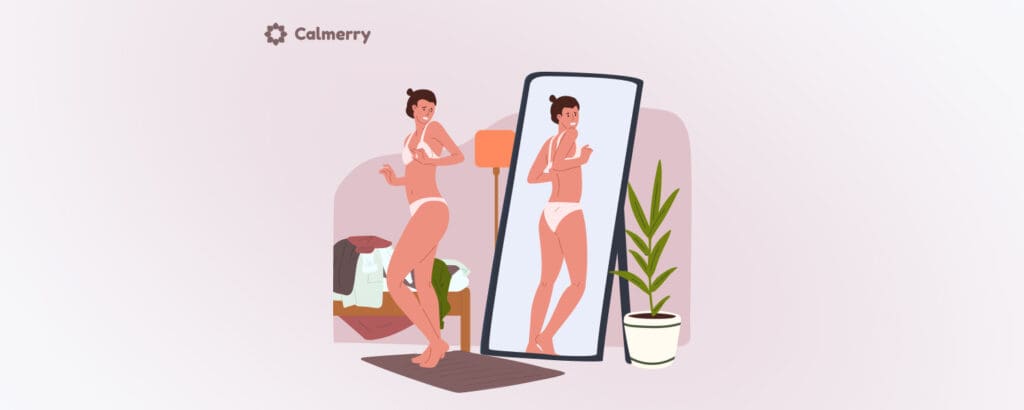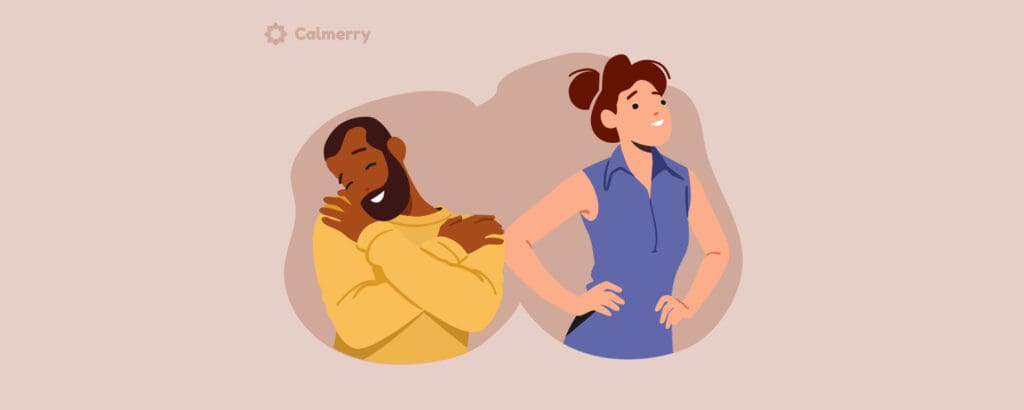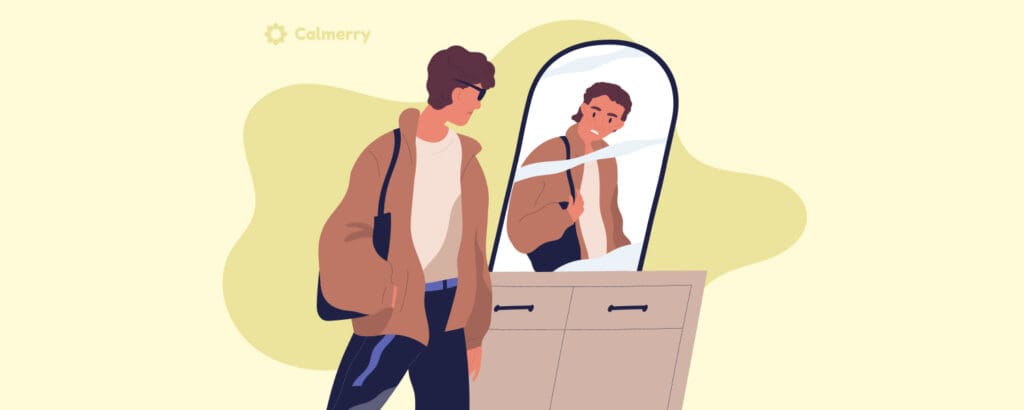Why Aren’t You Satisfied with Your Body?

In this article
A lot of people have at least one thing they would like to change about their bodies. Research revealed that up to 40% of women and almost 30% of men don’t feel good about their bodies. [1] Quittkat, H. L., Hartmann, A. S., Düsing, R., Buhlmann, U., & Vocks, S. (2019). Body dissatisfaction, importance of appearance, and body appreciation in men and women over the lifespan. Frontiers in Psychiatry, 10. https://doi.org/10.3389/fpsyt.2019.00864
Whatever the case, negative body image can be a serious trigger of depression, which should be taken seriously.
Today, television sets, social media, and magazines portray images of unrealistic perfection. However, studies show that exposure to such content can sometimes lead to eating disorders, low self-esteem, and depression.
Also, a negative perception of one’s body is a major reason why many college students think about suicide.
Keep reading and discover the reasons behind this common struggle and learn practical tips to start loving yourself more.
Why am I not happy with my body?
Feeling unhappy with your body is something many people experience.
How we think and feel about ourselves often develops in early childhood and continues into adulthood. Body image is impacted by family dynamics, social relationships, and cultural influences.
– Tiffany Lovins, Licensed Mental Health Counselor (LMHC)
One big reason for this is the influence of social media. Everywhere we look, there are pictures of celebrities and models who seem to have perfect bodies.
These images are often edited to remove any flaws, making it hard to remember that real people don’t actually look like that. When we compare ourselves to these unrealistic standards, it’s easy to feel like we don’t measure up.
Also, people begin to experience negative body image because of low self-esteem and negative self-talk. We often focus on our flaws instead of our strengths, and this can make us feel worse about ourselves.
Distorted beliefs about our self-worth and inherent value connected to body image expectations can develop if these unhealthy associations are implicitly or explicitly emphasized in our family of origin or primary social relationships.
It’s important to recognize these patterns and work on being kinder to ourselves, celebrating what our bodies can do rather than just how they look.
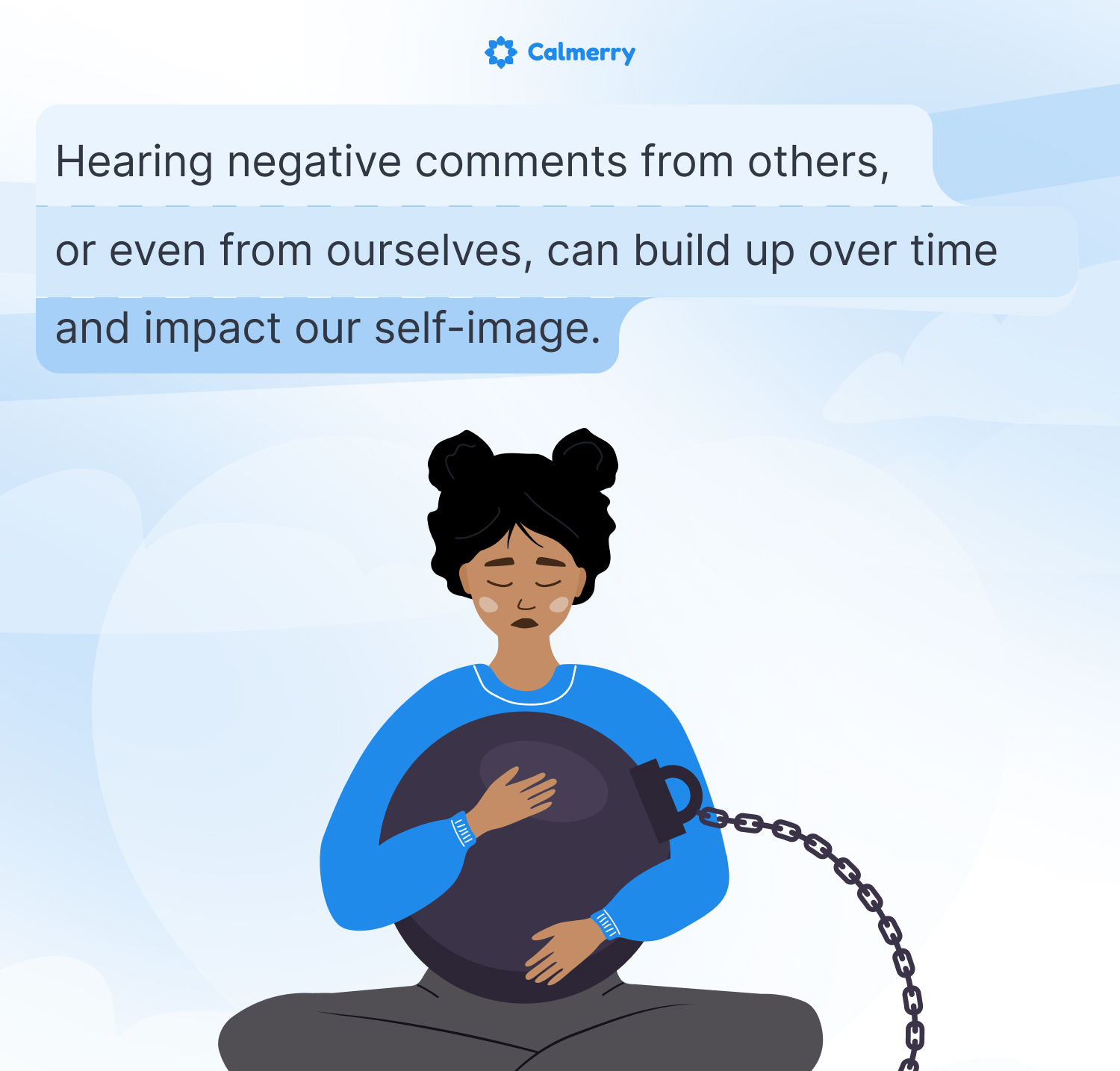
Reasons I don’t feel good about my body
There are both external and internal reasons why we might be unhappy with our body image. Understanding these factors can help you start to change how you feel about your body.
Let’s look at some common reasons:
Social circle
One important factor that affects our perception of body image is peers, family dynamics, and social relationships. Comparing ourselves to others is human nature.
So, if we stay around people of the same size and shape, we are bound to feel different about our bodies.
The reality is that this is not always possible and it’s more important to surround yourself with those who build up your self-confidence and esteem rather than criticize, promote a toxic culture of worth tied to appearance, or consistently engage in poor health practices that tend to make us feel worse.
– Tiffany Lovins, Licensed Mental Health Counselor (LMHC)
Also, the way others talk when referring to your body and their own bodies will influence your interpretations and thoughts.
Dysfunctional beliefs
False ideas you hold about your body leads to negative self-image. For example, thinking we must be thin to be happy is a dysfunctional belief.
Sometimes these distorted beliefs can also be tied to other underlying needs for gaining control when we are struggling to tolerate difficult emotions. Specifically, “I can’t control what is happening around me, but I can control what I eat or how I manage my appearance.”
These beliefs make it hard to appreciate our bodies as they are, leading to constant dissatisfaction.
Identifying the underlying emotional need behind the fixations and ruminating thoughts can help you seek out more effective skills and strategies to meet these needs or tolerate the difficult emotions that fuel these thoughts.
– Tiffany Lovins, Licensed Mental Health Counselor (LMHC)
Childhood hardships
Negative childhood experiences can shape how you see your body later in life. If children are teased or criticized about their appearance, they may grow up feeling insecure.
These negative comments can stay with you and affect your self-perception. For example, a child who is often called “chubby” might always see themselves as overweight, even if they are not. This can also lead to body dysmorphia, where you can have an obsessed focus on a perceived flaw in your appearance.
Later, these early experiences can lead to a lasting negative body image.
Stereotypes
Another factor that may diminish your dissatisfaction with your body is stereotypes. Communities have stereotypes of body types or sizes that are specific to the geographical, cultural, and racial settings.
For instance, Black women and Mexicans have to contend with messages that ideal women should be curvier to be considered more beautiful.
“Black-and-white thinking”
Dichotomous thinking, or “black-and-white thinking,” can make people see their bodies in extreme, unrealistic ways. They might think they are either “perfect” or “ugly,” with no middle ground.
This type of thinking can lead to harsh self-criticism if they don’t meet their own high standards. For instance, if someone gains a little weight, they might see themselves as entirely unattractive. This can lower their self-esteem and increase feelings of dissatisfaction.
Dichotomous thinking also makes it hard to appreciate small improvements or accept minor flaws. Over time, this mindset can create a persistent negative body image.
Asking yourself if the way you think is helpful or harmful and what other critical information you are missing is a great way to catch dichotomous thinking and work on reframing to set manageable expectations of self and the current reality.
– Tiffany Lovins, Licensed Mental Health Counselor (LMHC)
Unhappiness projection
When we face problems at work or in our personal relationships, it can make us feel unhappy overall. This stress and unhappiness can spill over into how we see our bodies.
For example, if we’re upset about a project at work, we might also start feeling bad about our appearance. Stress can make us focus on our flaws more.
Feeling down about one part of our life can make everything else seem worse. This includes our body image.
It’s important to address the root of our stress to help improve our overall happiness and how we feel about our bodies.
How to deal with negative body image?
The factors outlined above, together with past experience can diminish your perception of your body image. However, there’s always a way out.
The following tips may help you overcome negative body image: [2] How to overcome a negative Body Image | SUU. (n.d.). SUU. https://www.suu.edu/blog/2022/03/overcome-negative-body-image.html
- Adjust your attitudes and beliefs: change your mindset to focus on what your body can do, rather than how it looks. It can help you appreciate it more.
- Write down your positive personality traits: list qualities like kindness, humor, or creativity to remind yourself that your worth isn’t just about appearance. If you initially struggle to identify these for yourself, asking loved ones, friends, and colleagues for feedback about what they admire or appreciate about you can be a great way to start.
- Set healthy boundaries: avoid social media accounts that promote unrealistic body standards to protect yourself from negative comparisons and focus on content that makes you feel positive about your own body.
- Take care of your body: fuel your body with nutritious foods that promote energy and mental well-being and engage in healthy activities that build confidence and mastery.
- Say “yes” to things more often: try new activities to boost your confidence and make you feel good about yourself.
- Be kind to yourself: treat yourself with the same compassion you would offer a friend to improve how you feel about your body.
- Accept and love yourself as you are: embrace your unique features in order to appreciate your body and feel more comfortable in your own skin.
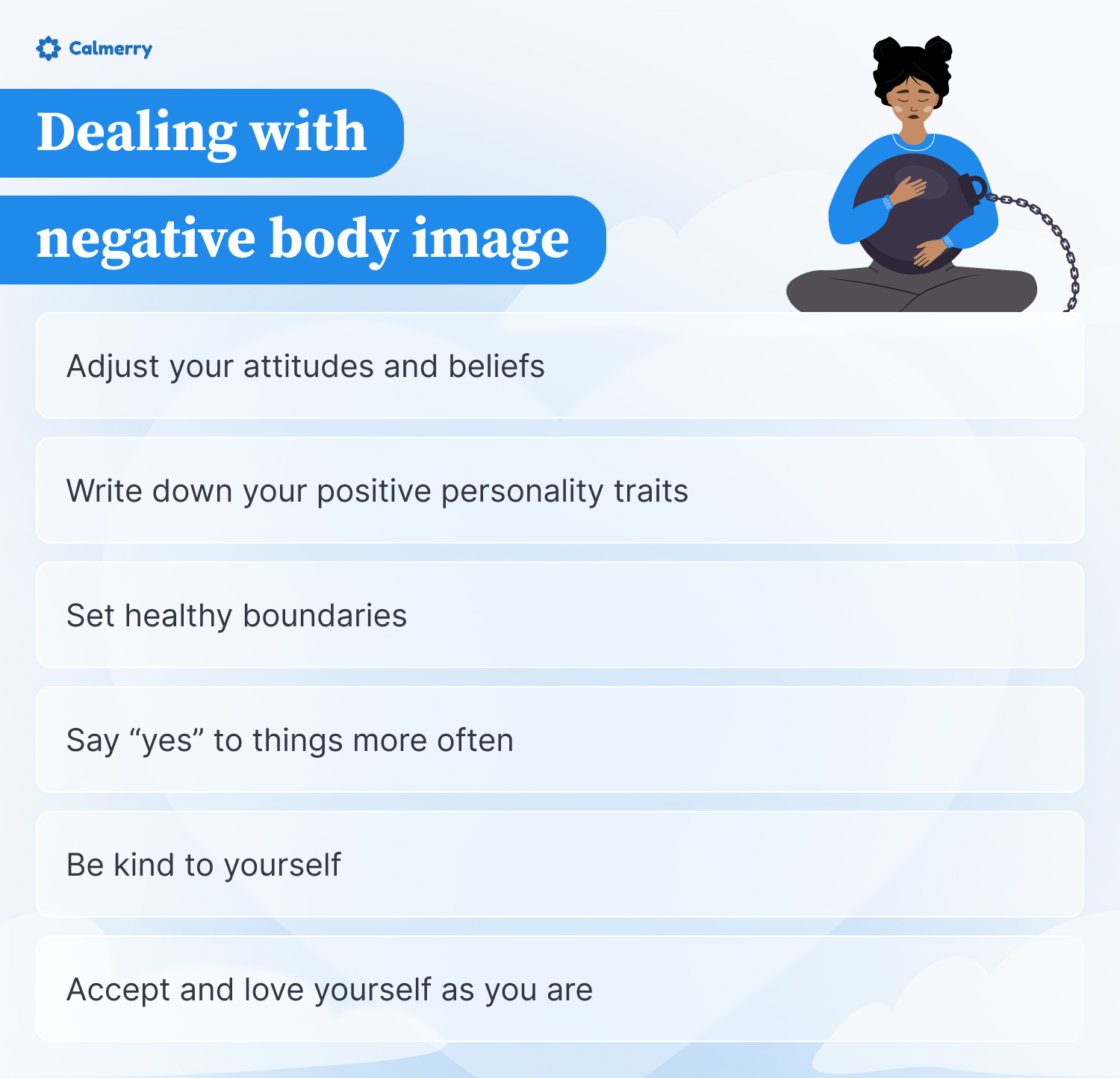
Final thoughts
Loving your body can be challenging due to societal pressures and personal insecurities; however, it is crucial for overall well-being and self-esteem.
Embracing your body with kindness and setting healthy boundaries can lead to a more positive self-image.
Certificated Calmerry specialists are always here to help you accept yourself as you are. If you find it hard to love your body, consider visiting a therapist for support and guidance on your journey to self-acceptance.
Start seeing yourself as a worthy, confident, and whole person, not as an “imperfect” body part.
Quittkat, H. L., Hartmann, A. S., Düsing, R., Buhlmann, U., & Vocks, S. (2019). Body dissatisfaction, importance of appearance, and body appreciation in men and women over the lifespan. Frontiers in Psychiatry, 10. https://doi.org/10.3389/fpsyt.2019.00864
How to overcome a negative Body Image | SUU. (n.d.). SUU. https://www.suu.edu/blog/2022/03/overcome-negative-body-image.html
online therapy
live video session
